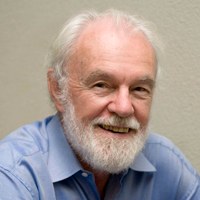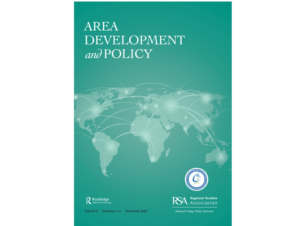Area Development and Policy Plenary 2022, 27/02/2022, 08.20 PST, 11.20 EST, 16.20 GMT , 17.20 CET
David Harvey (City University of New York)

The Double Consciousness of Capital
In the Grundrisse, Marx provides two seemingly antagonistic visions of the role and significance of capital in the history of humanity. In the first, he builds a laudatory account and up-beat assessment of how, through its penchant for creative destruction and technological revolutions, capital can bring us to the cusp of a new form of society, a civilization in which the human species can flourish as never before. I will refer to this mode of thinking about capital, and the path to socialism it presages, as Model 1.
But later on, Marx offers some very different reflections on how the history of humanity has unfolded with the rise of capital. Here that legacy is seen as deeply problematic to the point where it constitutes a primary and perhaps insuperable barrier for founding a rosy socialist future. In these reflections alienation, hollowing out, loss of meaning, the sacrifice of all human potentiality to molloch, the god of money power, and the descent into vulgarity of capitalist developmentalism are central. I will refer to this theorization of capital and the tasks it sets for any socialist transition as Model 2 and I shall discuss their implications for the interpretation of the contemporary world.
Chair: Eric Sheppard (UCLA)
Discussants: Melissa Wright (The Pennsylvania State University) and Matt Sparke (University of California, Santa Cruz)
Organiser: Michael Dunford, (Chinese Academy of Sciences)
Area Development and Policy Lecture 2022, 27/02/2022, 11.00 PST, 14.00 EST, 19.00 GMT, 20.00 CET
Derek Gregory (University of British Columbia)

Over the Horizon and Beyond the Pale: Drone Strikes and Spaces of Exception
Spaces of exception are not limited to ‘camps’, and Giorgio Agamben’s canonical discussion fails to recognise the complex and racialized geographies of exception in war zones. This lecture focuses on areal violence conducted by the United States in Afghanistan, and the continuities between drone strikes during the US occupation and those now being carried out as part of a supposedly new, post-occupation “over the horizon” strategy (that is clearly intended to reach beyond Afghanistan). Focusing on three drone strikes – in February 2010, September 2013 and August 2021 – I pay particular attention to (a) the legal armatures invoked and involved; (b) the cultural asymmetry and ‘aerial essentialism’ that renders virtually all Afghans as inherently suspicious, threatening and hostile; and (c) the emergency medical treatment available to Afghan civilians. Taken together, these studies cast a bleak light on the humanitarian veneer of later modern war in the global borderlands.
Chair: Mia Bennett (University of Washington)
Introduction: Weidong Liu (Chinese Academy of Sciences)
Discussants: Jennifer Fluri (University of Colorado, Boulder) and Katharne Hall (Queen Mary University of London)
Organiser: Michael Dunford, (Chinese Academy of Sciences)
Area Development and Policy Journal

Area Development and Policy (ADP) concentrates on issues relating to the Greater BRICS and welcomes submissions emerging from these countries as well from the developed world. ADP places an emphasis on research which examines the role of diverse institutional configurations and values at both national and regional levels within the Greater BRICS, and believes that theories should derive from the experiences of these countries and regions and not necessarily from the (possibly exceptional) experiences of Northwest Europe and North America. ADP is dedicated to expanding common ground while accepting differences, improving mutual communication and increasing cooperation and shared learning. More on the journal here.